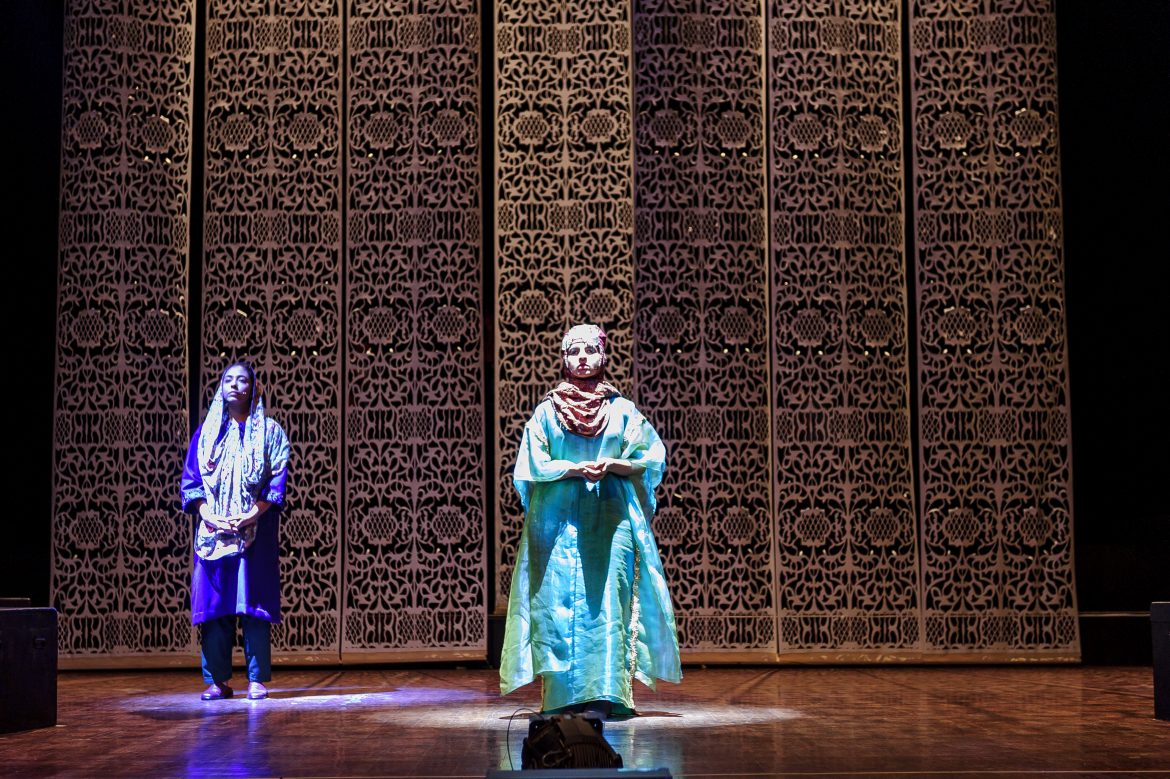A new play Zoon: Noor Kashmir Ka, by award-winning playwright-director Purva Naresh, connects the story of Kashmir’s legendary poetess Zoon or Habba Khatoon, with conditions in Kashmir today.
There have been attempts to make films on Zoon (the best known one being Muzaffar Ali’s incomplete project Zoonie, starring Dimple Kapadia and Vinod Khanna as her husband Yusuf Shah Chak, the king of Kashmir), but the peasant/poet/queen/ ascetic seems to have evaded capture by Bollywood.
Along with Lal Dedh and Arnimal, Habba Khatoon forms the trio of female poets of Kashmir (interestingly, each two centuries apart), whose work has survived through the ages, and is still recited and sung in Kashmir, or wherever Kashmiris congregate.
Zoon (meaning Moon) was born to a peasant, and was given that name due her great beauty. It was not common in the 16th century for women to be educated, but she was taught to read and write by the village maulvi. At a young age, she was married to a farmer from her village, but they were soon divorced. Again, in those days, incompatibility could not have been a common ground for divorce, but that’s the way it happened.
She used to compose and sing her poems sitting by herself in the forest; from what survives of her poetry some of it was surprisingly erotic.
He gazed at me through the door
Wonder who showed him where I lived
And I ached with love in every limb
Forever a young girl in desire
Or:
Lost in her world of dreams
Laila lit her lamp in the dark
I am the moth and you my light
Enjoy my pomegranate blossoms
She was spotted by King Yusuf Shah Chak, who was smitten by her beauty and her poetry. When he invited her to a palace mushaira, she was mocked as a tawaif by the arrogant (and later treacherous) poet Zarfi, who didn’t think women could write at all, or at least not anything beyond mundane feminine concerns of kanghi-choti (comb and braid). In Purva’s version, Zoon (played by Ipshita Chakraborty Singh) won over the court by her romantic poetry and Yusuf married her (or added her to his harem in some accounts of the story), against the wishes of his mother.
Purva makes Habba Khatoon a pacifist, who prevents her husband from being provoked into a war by his rebellious brother, that would cause needless bloodshed, and later, from taking on the armies of Mughal Emperor Akbar, who had his eye on Kashmir. Her influence may actually have sent Yusuf to his doom. Akbar arrested and sent Yusuf away to Bihar, and she never saw him again.
According to folklore, she left the palace and lived in a hut by the Jhelum river, where she wrote poems of grief and separation. These (source: ikashmir.net) may have been among them:
The distant meadows are in bloom
Have you not heard my call?
Flowers bloom on the mountain lakes
Comes let us go to those meadows now
The lilacs bloom in the distant woods
Have you not heard my call?
And:
I’ll seek you by the wandering brooks
Praying we must meet again
I’ll look for you where the jasmines bloom
Don’t tell me we shan’t meet again
Purva has portrayed Habba Khatoon in three forms, one as the outspoken queen (who made the king dance for her; he said he summoned dancers when he was bored, so she demanded male dancers to entertain her), a peasant girl who is her inner voice (also explains her descriptions of the natural beauty around), and an actress who has come to Kashmir from Delhi to play Habba Khatoon in a play to be staged in the beleaguered stage, and looks with longing for an old home that is no longer there.
What is common between the poetry of Lal Dedh, Habba Khatoon (whose life overlapped that of Mirabai in Rajasthan) and Arnimal, is unhappy or short-lived marriages and a yearning for love—either in a spiritual or emotional form. In a patriarchal society of those times, for women to express their feelings was a radical act. That their poems have been passed down over centuries, is a credit to the people of Kashmir, who did not let their words get lost or appropriated by male poets (as it often happened).
Lal Dedh was tortured by her mother-in-law, and after she could bear it no more, she left her husband’s home, and wandered about as a seeker for a higher truth. Her mystic poetry has been widely translated and, like Mirabai, she speaks of God as the beloved for whom she pines:
I, Lalla, searched and sought for Him,
And even beyond my strength I strove.
Finding His doors bolted and barred
I longed the more;
And firmly resolved, I stood just there
with longing and love,
Fixing my gaze upon His door.
Arnimal, abandoned by her husband, wrote poems full of heartbreak and desire:
Wreaths of flowers I wove for my husband
Would that he were to accept it
Cups of wine I filled for him
Would that he were to come
I yearn to clasp him in my arms
Today, the songs that come out of Kashmir are soaked in blood and anger. As Habba Khatoon says in Purva’s play, a king rules over zameen (land), and a poet over zameer (conscience). If poetry is silenced, will conscience lose its voice? Zoon asks questions that no longer have answers; as she says in the play, with a gun in between, there can be no reconciliation.
(This piece first appeared in The Free Press Journal on November 20, 2019)

